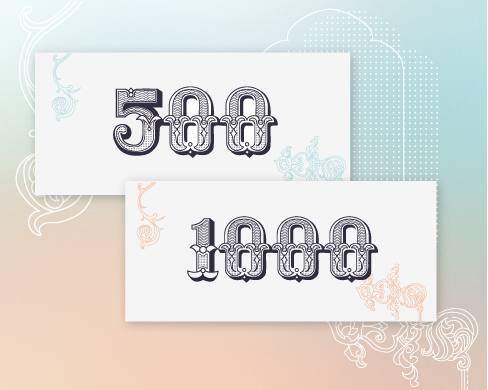How will the Indian economy react to PM Modi’s currency note ban?

This morning many Indians woke up to find that they had no money! What they did have were the now demonetised pieces of paper that once used to be Rs. 500 and Rs. 1000 click to investigate.
Prime Minister Modi announced that Rs. 500 and Rs. 1000 notes will no longer remain valid starting Nov. 9.
Prime Minister Modi announced Tuesday night that the beloved Rs. 500 and Rs. 1000 notes will no longer be a valid tender. “It will be as good as a scrap piece of paper,” he said, in an address to the nation.
Prime Minister Modi announced Tuesday night that the beloved Rs. 500 and Rs. 1000 notes will no longer be a valid tender. “It will be as good as a scrap piece of paper,” he said, in an address to the nation.
Indians have until December 30 to exchange their Rs.500 and Rs. 1000 notes for those of lesser denominations from the banks. From Nov. 11, banks will start distributing the newly designed and minted Rs. 500 and Rs. 2000 notes, according to Ashok Lavasa, the financial secretary.
Here are some ways in which the recent announcement is going to impact different sectors of the Indian markets.
More money available in the banks
With the sudden announcement that makes the notes that people have stashed away under the clothes in the cupboards or even in their wallets—there is an understandable rush to get cash out from the ATM. Once the banks reopen, people will start depositing more and more money into their bank accounts in order to exchange their now invalid notes.
However, when it comes to withdrawing that money—the government has put a limit on it—to maintain the cash in-flow and out-flow. There is a limit on the amount of money that an account holder can withdraw in a day and/or get cash back in return for the deposit. The limit starts off with Rs. 2000 a day during the initial few days and will be raised gradually over the next 50 days. This strategy to distribute cash gradually will result in a higher level of cash in-flow into the bank whereas the outflow is reduced drastically.
That translates into more money with the bank leading to more availability of cash for lending.
There is a caveat to the positive effect of this announcement on the banking sector. Several businesses such as small businesses and vendors that majorly dealt in cash transactions will not be able to do ‘business as usual’ after this announcement. Many of these small businesses will not be able to pay back loans which they took from the bank. Banks will see a higher ratio of NPA’s (Non-Performing Assets) thus affecting their bottom line.
Real estate market prices will drop
Most of the real estate transactions are conducted via black money—using notes of Rs. 500 and Rs. 1000. Even if the intrinsic value of a home might be high but given that a large amount of money that is available in cash (with the buyers) is now illegal—property prices will fall.
Prime Minister Modi had announced about two months ago an opportunity for everyone to pay taxes on their black money and “make your money real.” During that time, people could pay a 30% tax on the cash-in-hand and declare the cash that they hold.
Experts say that there is going to be a loss in cash overnight in the real estate sector. This is a good news for those wanting to purchase homes legally and at a cheaper price than usual.
Value of the Rupee
In the long-run, after the initial chaos in the market once the market adopts to the new Rs. 500 and Rs. 2000 notes the currency value of the Rupee will appreciate. In terms of valuation of the Rupee against other foreign currencies, there will be more demand for the right kind of money (read legally declared money) now that money circulating in the black market would—in an ideal world—cease to exist.
Effect on the Gold sector
Post this announcement, several investors might look to buy gold with the cash they have in hand because some jewelers are accepting notes of higher denominations prior to the Dec. 30 deadline.
A lot of undeclared cash is circulated especially in the gold sector. The new rule will either force players in the gold sector to declare their hard cash or suffer a cash loss.
Conclusion
After the initial knee-jerk reaction of lining up at the ATM, if you as an investor are looking to get more returns on your money—the stock market is a sector where you can continue trading and investing for the long-term—minus the need for cash transactions.
—Trade Academy director Prateek Singh contributed to the story.